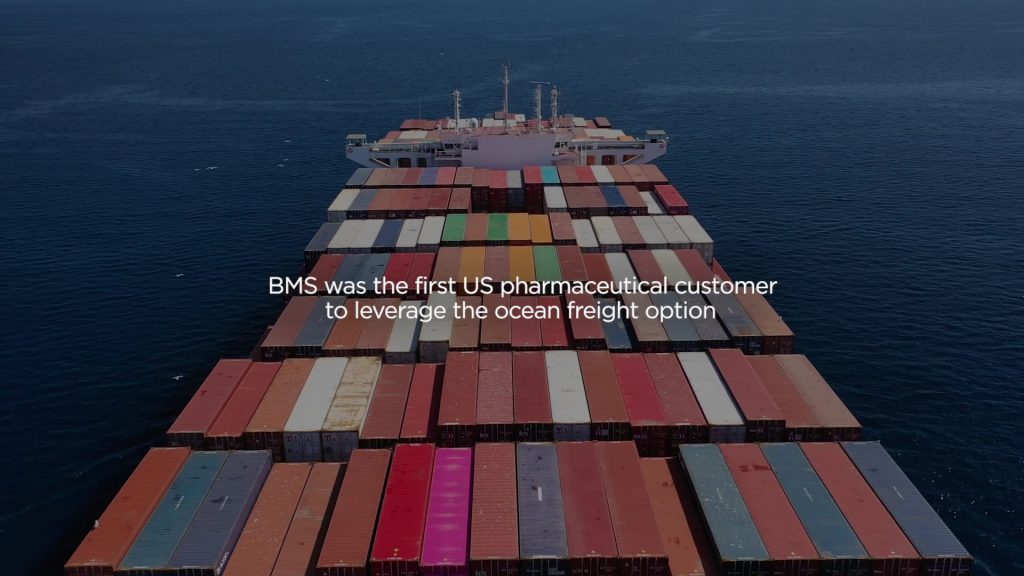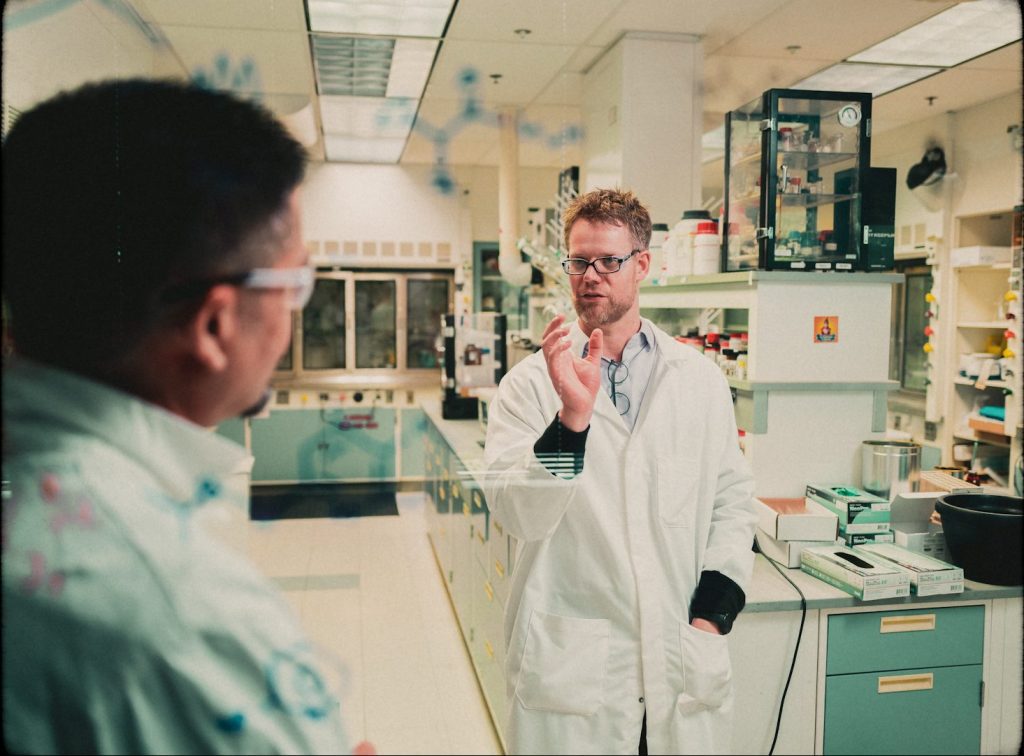Leading biopharma company Bristol Myers Squibb (BMS) embraces responsible hardware procurement by incorporating Lenovo’s Sustainability Solutions
Lofty goals
Bristol Myers Squibb (BMS) is a global biopharmaceutical giant with over 30,000 employees dedicated to advancing medicine. BMS focuses on oncology, hematology, immunology, and cardiovascular disease, aiming for groundbreaking treatments. Beyond medicine, BMS targets net zero emissions across its operations and value chain by 2050, reflecting its ambitious environmental goals.
“Our mission,” says Devin Carsdale, Associate Director of Sustainability for Strategic Sourcing and Procurement at BMS, “is to discover, develop and deliver innovative medicines that help patients prevail over serious diseases. But we also need to do it in an environmentally sustainable way. Part of the work to accomplish that is finding all the many solutions to deliver on a net-zero future.”
The challenges BMS faces in those endeavors are also faced by many companies around the world. How can a company maintain its high standards of operation while discovering newer, more environmentally responsible practices? How can the company fully pursue its goals for sustainability, without compromising its first and foremost mission to deliver medicines to patients? Through collaboration and shared expertise, BMS and technology partner Lenovo worked together to further the company’s ambitious vision and build solutions together.
Workshopping solutions
Lenovo has globally recognized expertise in technology hardware, manufacturing the world’s favorite laptops, ruggedized and reliable server infrastructure and mobile tech via Motorola. But the expertise Lenovo brought to its partnership with BMS went beyond just supplying tech. Lenovo also provided advisory services, through Lenovo’s Environmental, Social and Governance (ESG) solutions. By taking direct action regarding data transparency, Lenovo is enabling customers like BMS to make more informed decisions on how it manages sustainability solutions globally.
“We recognize that we need to take climate change seriously,” says Lenovo ESG subject-matter expert, Sara Andelin, discussing Lenovo’s own commitment to achieving net zero emissions, “which is why all of our targets are validated by the Science Based Targets Initiative (SBTi), which is the gold standard for environmental compliance.”
The SBTi is a climate action organization enabling companies and institutions around the world to play their part in combating the climate crisis by developing tools and standards to allow companies to set greenhouse gas emissions reduction targets in line with efforts to reach net-zero. By the end of 2023, over 4,000 companies and financial institutions were participating in the effort by having their targets validated by the STBi.
According to Carsdale: “The fact that Lenovo sets science-based targets shows us that they’re serious about reducing carbon emissions, and it means that we have a common outcome in mind when designing potential solutions. Our partnership is important because it’s a chance to come together with a shared purpose towards sustainability and challenge ourselves on how to achieve our goals.”
To further minimize the impact of its operations, BMS is constantly looking for more opportunities to cut emissions and waste from its hardware supply chain. BMS turned to technology partner Lenovo to help uncover solutions. In early 2023, BMS conducted sustainability workshops with Lenovo. The aim was to find tangible opportunities to help decarbonize the supply chain of its hardware devices.
“We know that our supply chain makes up about approximately 83% of scope three emissions and so we inherently will not be able to reduce those value chain emissions without working closely with our supplier partners in doing so,” remarked Carsdale.
Using historical data on the company’s hardware purchases, Bristol Myers Squibb and Lenovo were able to identify aspects of its procurement process that could be adjusted.
Small changes; lasting impact
Together, Lenovo and BMS evaluated the way the company procures technology, an essential aspect of the business, and a substantial source of emissions.
“Technology is a critical enabler of digital transformation at Bristol Myers Squib,” says Latha Kethineni, Senior Director of IT Asset Management Services at BMS. “Constantly improving technology can enable research and development of new treatments at a faster and more efficient pace, whether it’s driving new discoveries in research labs, manufacturing innovative medicines, or enabling teams in the way they design, develop, produce, and commercialize medicines.”
Improving the efficacy and pace of medicine development is a high priority at BMS, but that also means that procuring new technology consistently adds to the company’s emissions toll.
While manufacturing is commonly a topic of focus when it comes to sustainability, shipping and procurement also have large impacts on emissions. Shipping and transportation account for more than 20 percent of global emissions, and Lenovo and BMS found ways to lessen that impact without sacrificing efficiency and reliability.
“Within the IT department,” says Kethineni, “we realized we had an opportunity to effect positive environmental change and to make sustainability gains.”
Joe McGuigan Director of IT Procurement, Bristol Myers Squibb. “Historically, we’ve looked at meeting the needs of the enterprise in terms of speed. That has led to the default of shipping products via air as the most efficient form of transportation. However, when you look at the enterprise’s device needs from a different angle, with the sustainability goals and objectives that BMS has, you realize that an opportunity exists to adjust variables such as order dates and lead delivery times, and still achieve our business objectives. This has allowed us to optimize for sustainability and business continuity, not just speed. We can still meet the needs of that organization but in a more sustainable way.”
Helping BMS transition from air freight to ocean freight, when possible, can cut carbon emissions, and choosing bulk packaging offerings, when available, can help reduce BMS’s packaging footprint.


BMS also worked with Lenovo to expand its use of bulk ordering and sustainable packaging, Bulk ordering helps reduce packaging waste, and shipping emissions. Add to that Lenovo’s bio-based packaging using materials like bamboo and sugarcane which are 100% rapid renewable. Lighter-weight materials also reduce emissions during transportation by lowering fuel requirements.
The Road to Net Zero
Working with Lenovo, BMS is proving that making environmentally impactful changes doesn’t need to come at the cost of efficiency and that working towards lower emissions can be just as good for a company’s bottom line as it is for the planet. In 2023, BMS estimates it saved approximately 70 metric tons of CO2 emissions with ocean freight and achieved an additional 10-15% reduction in emissions through bulk packaging services. These positive changes support the company’s targets for reaching net zero by 2050, but BMS sees this progress (and their partnership with Lenovo) as the beginning of a longer journey.
“Lenovo and BMS both are very people-oriented,” says Andelin, “and through that lens we are able to look at sustainability in a very unique way. We all have similar goals, and the way we’re going to be successful is by sharing knowledge and information so that we can both get to where we want to go. Working with BMS allows them to lead, in a space that needs leaders, to create status quos that change the rest of the industry and make it better for everyone.”
Devin Carsdale “Getting to net zero is a journey and we can’t do it alone. The improvements that we’re making to our IT operations with the collaboration of Lenovo is just one step of that journey–and it doesn’t end here.”
“I’m very proud to be a part of this journey,” Says Kethineni, “to build a brighter future for our patients, our communities, and our employees.”

